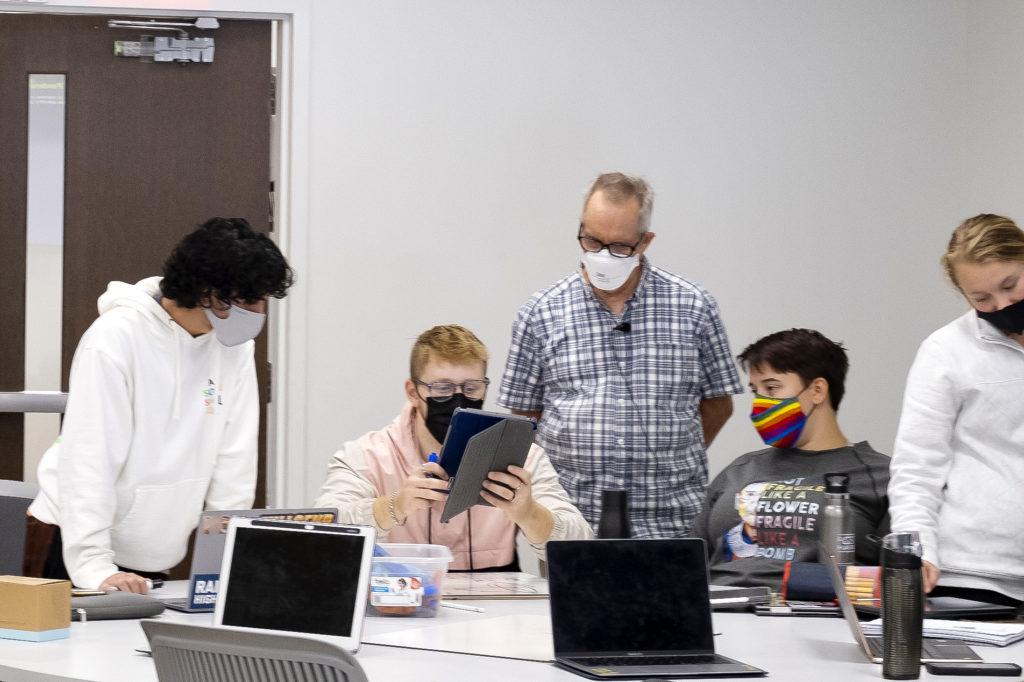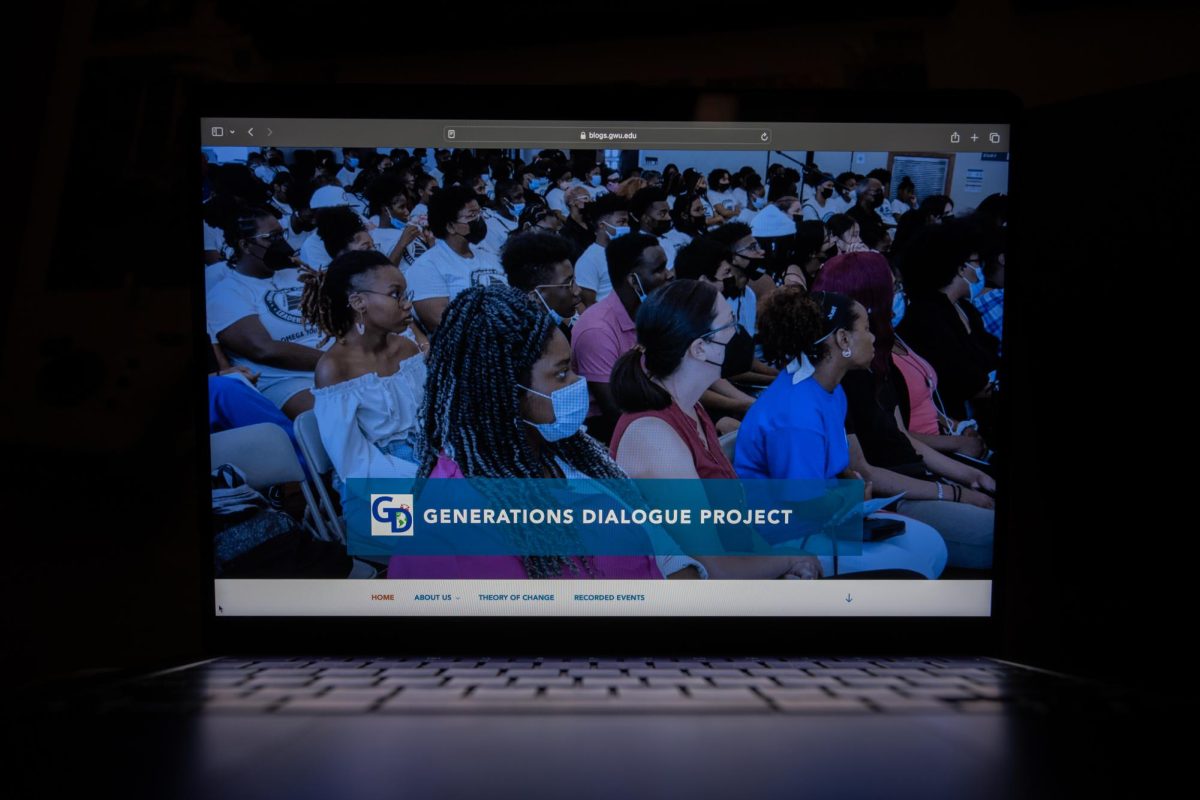Although officials expect high rates of COVID-19 infections this spring following record-high caseloads at GW earlier this month, faculty said the University’s guidelines will protect community members as in-person classes resume this week.
Professors said they will offer “reasonable accommodations,” like increased hybrid class discussions and recorded lectures for students who contract COVID-19 in the spring as the University braces for a surge in positive cases. Officials have repeatedly said they expect a “large number” of students to test positive for COVID-19 because of the highly contagious Omicron variant, but more than half a dozen professors said they feel safe and prepared to return to in-person instruction because of the GW’s layered COVID-19 mitigation approach.
Janet Woodcock, the acting commissioner of the Food and Drug Administration, said the Omicron variant that became the dominant COVID-19 strain in less than two weeks in December will likely infect most Americans at a U.S. Senate hearing earlier this month.
Interim University President Mark Wrighton said in an interview last week that no community members had severe illness from COVID-19 at the time, and officials were only aware of one community member who had been hospitalized during the fall. The individual was discharged after three days, he said.
Fran Buntman, an assistant professor of sociology, said while in-person instruction is easier for learning, she has “mixed feelings” about returning to in-person classes because of the possibility of contracting COVID-19.
“I want to be back in the classroom; I think it’s good for students and I prefer it,” she said in an email. “At the same time, I am nervous. It is risky.”
Buntman said she will start recording all her lectures and will make them available online for students to watch after class. She said she has been more lenient throughout the pandemic in an effort to be more “flexible” with students.
“I’ll give students any and all reasonable accommodations, e.g. extra time, incompletes,” she said. “If there are very high rates of illness, especially at the same time, I might need to create alternative approaches so everyone can manage.”
She said the University should accommodate faculty who contract COVID-19 because sickness can interfere with their instruction, research and tenure track.
“If a professor is too sick to teach that will mean a certain amount of material normally taught over the semester just can’t be taught,” Buntman said. “I don’t really hear people saying that out loud, and I think it needs to be said. Faculty must not be penalized if they get sick.”
Officials mandated that all GW community members receive the COVID-19 vaccine in the spring and required all students to get the booster shot for COVID-19 last month. GW will also hand out free N95 masks to the community this spring.
The University began the spring semester with a week of remote classes following a spike in COVID-19 cases across the University and the District. Last month, D.C. recorded an average of 293 positive cases per 100,000 residents, a daily rate that topped caseloads around the country.
Dylan Conger, a professor of public policy and public administration and the associate director of the Trachtenberg School of Public Policy and Public Administration, said even with the possible increase in COVID-19 cases this semester, she feels safe returning to in-person instruction because of GW’s multi-layer protection measures like mask and vaccine mandates.
“I trust the coronavirus response team at the University,” she said in an email. “They have clearly prioritized safety since the beginning of this pandemic. I do not worry about holding an in-person class given the University requirements that community members be vaccinated, masked and tested.”
GW reserved 250 off-campus beds in isolation housing and prepared “isolation-in-place” contingency plans earlier this month for students who may test positive for COVID-19.
Conger said she will continue to record all of her lectures for students who have to miss class because of COVID-19 isolation and will also teach her course virtually if she contracts the virus.
Gerald Feldman, a professor of physics, said while positivity rates may rise in the spring, the University should follow the same protocols it did in the fall. He said he is thankful GW will return to in-person instruction after one week of remote learning because it allows a more effective teaching style.
“I’m glad GW stayed with their plan,” he said. “And I do hope that people are coming back with their fall experience. My fall experience makes me a little confident for spring, and hopefully everyone else will continue to behave well and follow the rules.”
Irene Foster, an associate professor of economics, said she is glad to return to in-person classes because of the benefits to learning, but she will continue offering a hybrid option like she did last semester, where students could choose to either watch class live via Zoom or attend class in person. She said the option can help students choose the learning environment that makes them feel comfortable.
Foster added that other faculty members she’s spoken to have expressed the same excitement to return to teaching in person.
“I thought I should give my students the option of whether they want to come to class or not,” Foster said. “Students who really value the in-person class experience come to class, and we have a great time. And then the students who really learn better being on their own quietly in their dorm room or wherever they are can stream in live to the class.”
Lakeisha McClary, an assistant professor of chemistry, said she will encourage her students to wear N95 masks to limit coronavirus transmission in her classrooms, where students spend a lot of time together while working in chemistry labs.
“In class, I will ask students to procure N95 masks once the University has them available to distribute,” she said in an email. “We will be in a small classroom for up to four hours, so having what public health officials say are the best masks will be tremendously helpful to creating an environment where folks can feel safe.”
She said the quality of her instruction is significantly better with in-person learning where she can monitor her students’ work and where they have access to lab equipment that will improve their experience.
“From my perspective as their professor, I was able to offer feedback on technique, demonstrate something if need be,” she said. “I can see what students are working on and am much more equipped to help them navigate sticking points in their research than if they were all in their own spaces.”
Nousha Flore contributed reporting.








